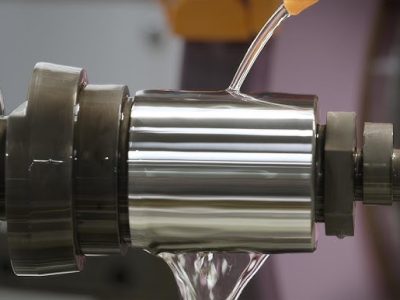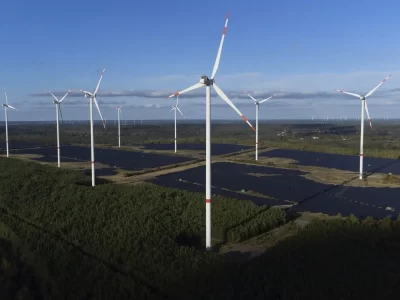The automobile has evolved from a simple mode of transportation to a sophisticated piece of engineering that has transformed the way we live, work, and travel.
In today’s fast-paced world, the modern automobile represents the pinnacle of technological innovation, safety, and comfort. From electric vehicles to self-driving cars,
the automotive industry continues to push the boundaries of what is possible, revolutionizing the way we move from point A to point B.
In this comprehensive guide, we’ll explore the various aspects of the modern automobile, from its history and evolution to its latest innovations and future trends.
History and Evolution:
The history of the automobile can be traced back to the late 19th century when inventors such as Karl Benz and Henry Ford pioneered the kalyan chart development of the first gasoline-powered vehicles.
These early automobiles were primitive by today’s standards, featuring rudimentary engines, wooden frames, and spartan interiors. However, they laid the foundation for the automotive revolution that was to come.
Over the decades, advancements in technology and manufacturing techniques transformed the automobile into a mass-produced commodity, making it accessible to millions of people around the world.
The introduction of assembly line production by Henry Ford revolutionized the industry, allowing for the efficient and cost-effective production of automobiles on a large scale.
As a result, car ownership became a symbol of mobility, freedom, and status in the 20th century.
Innovation and Technology:
In recent years, the automotive industry has witnessed an explosion of innovation and technological advancement, driven by factors such as environmental concerns, consumer demand, and regulatory requirements.
One of the most significant trends in the modern automobile is the shift towards electric vehicles (EVs) powered by batteries or fuel cells.
EVs offer several advantages over traditional gasoline-powered cars, including lower emissions, reduced operating costs, and increased energy efficiency.
Another major innovation in the automotive industry is the development of autonomous or self-driving vehicles.
These vehicles use a combination of sensors, cameras, and artificial intelligence to navigate the road and make driving decisions without human intervention.
While fully autonomous cars are still in the experimental stage, they have the potential to revolutionize transportation by improving safety, reducing traffic congestion, and increasing mobility for people with disabilities.
In addition to electric and autonomous vehicles, the modern automobile is also equipped with a wide range of advanced features and technologies designed to enhance safety, comfort, and convenience.
These include features such as adaptive cruise control, lane-keeping assist, automatic emergency braking, and advanced infotainment systems.
With the rise of connected car technology, vehicles are becoming increasingly integrated with the internet, allowing for features such as real-time navigation, remote vehicle monitoring, and over-the-air software updates.
Read Also: Maximizing ROI with Effective Marketing Funnels
Environmental Sustainability:
Environmental sustainability is a major concern in the automotive industry, with car manufacturers under increasing pressure to reduce emissions and minimize their carbon footprint.
In response to these challenges, automakers are investing heavily in research and development to develop cleaner and more efficient vehicles.
This has led to the widespread adoption of alternative fuel technologies such as hybrid, plug-in hybrid, and hydrogen fuel cell vehicles, which offer lower emissions and better fuel economy than traditional gasoline-powered cars.
In addition to developing cleaner vehicles, automakers are also exploring ways to make the manufacturing process more environmentally friendly.
This includes initiatives such as using sustainable materials, reducing waste and energy consumption, and implementing renewable energy sources in production facilities.
By adopting these practices, car manufacturers are working towards a more sustainable future for the automotive industry.
Future Trends:
Looking ahead, the future of the automobile promises to be filled with even more innovation and transformation.
As technology continues to advance, we can expect to see further improvements in areas such as electric propulsion, autonomous driving, and connected car technology.
Electric vehicles are expected to become increasingly mainstream, with advancements in battery technology leading to longer range, faster charging times, and lower costs.
Similarly, autonomous vehicles are poised to become more prevalent on the roads, with self-driving cars offering greater safety, convenience, and efficiency.
As the technology matures and regulatory barriers are overcome, autonomous vehicles have the potential to reshape urban mobility and revolutionize industries such as ride-sharing and logistics.
Conclusion:
The modern automobile is a testament to human ingenuity, innovation, and perseverance.
From its humble beginnings as a horseless carriage to its current incarnation as a high-tech marvel, the automobile has come a long way in a relatively short period of time.
As we look towards the future, the automotive industry is poised for even greater transformation, with electric vehicles, autonomous driving, and connected car technology leading the way.
By embracing these advancements and continuing to push the boundaries of what is possible, the modern automobile will continue to redefine the way we live, work, and travel for generations to come.
Read More: Harnessing the Power of Zalgo Text Conversion for Visibility


















